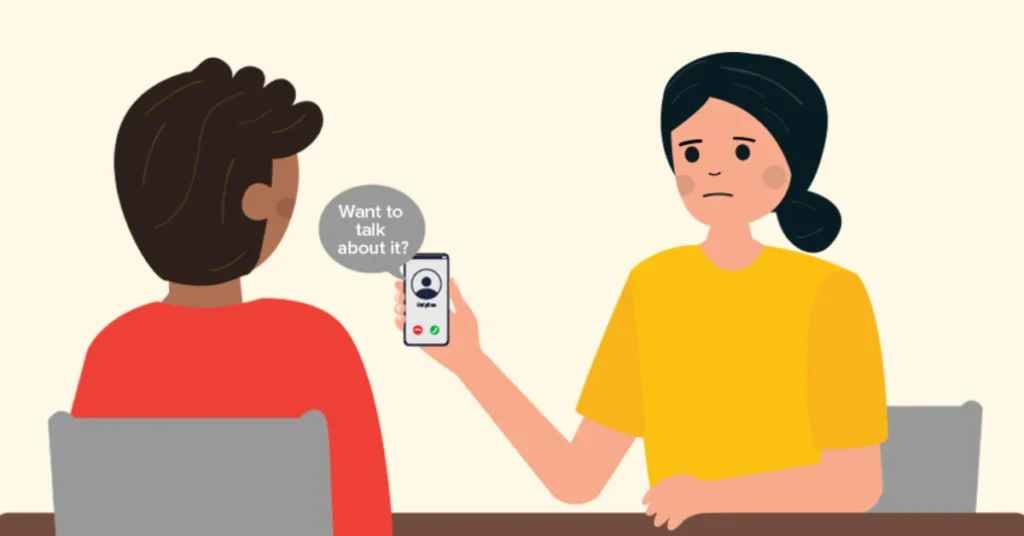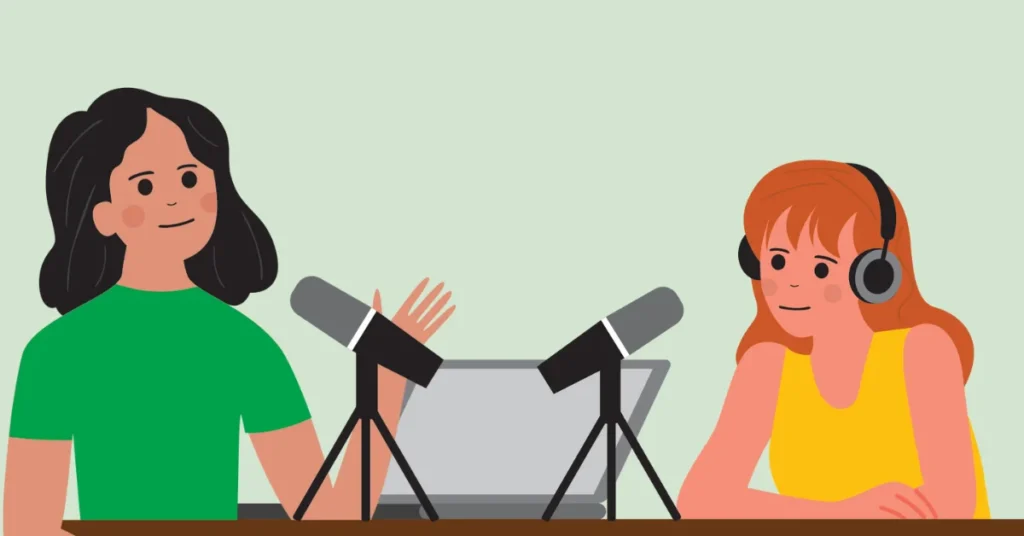A few years ago, Toluwanimi Jewel, a doctor with years of clinical experience, noticed that one of her managers at work had been acting out of character for a few weeks.
‘I noticed that this particular person was withdrawn. They had become absent minded, staring into space, and basically zoned out.’
Driven by her passion for mental health, both as a clinician and in her personal life, Toluwanimi Jewel had trained as a Mental Health First Aider not long prior. She had used her skills to support colleagues and friends, but this was the first time she found herself in a situation needing to support someone senior in the workplace.
‘The training that I had in 2021 gave me the ability to recognise the signs and approach the person. It also gave me permission to be that person that shows up for other people.’
Although her clinical background gave her the expertise to diagnose and treat mental illness, Toluwanimi Jewel understood that being an MHFAider was about reaching out to someone in a supportive, non-clinical role and, in many cases, being the one to initiate the conversation.
After inviting her manager to have a chat somewhere private, she found that they opened up to her quite quickly.
‘They told me that they were experiencing burnout because of everything that was happening at work, and the demands that work had for them.’
These demands were beginning to weigh heavily on their personal life, impacting their sleep, eating habits, and confidence. They were also unable to maintain important connections with friends and family, which are so important to wellbeing.
Toluwanimi Jewel recognised these as signs that her colleague was experiencing mental health problems.
‘Luckily for me, this person was very open to the conversation, and they opened up to me at that first conversation.’
Toluwanimi Jewel says being non-judgemental was key, as was her willingness to sit with them and listen.
‘They felt heard in that first conversation. That was the most profound thing that stood out to me.’
That initial conversation opened the door for future conversations and the manager ended up seeking additional counselling.
Toluwanimi Jewel says these steps contributed to her manager being able to make choices that improved their work-life balance and helped them to rebuilding their life outside of work.
‘The last time I had a chat with this person, they were doing pretty well, enjoying the current state they were in.’
For Toluwanimi Jewel, becoming an MHFAider gave her the tools and knowledge to recognise and support someone in need, and she believes that everyone has a responsibility to support the mental health and wellbeing of those around them.
‘Having done this course, not only has it given me the opportunity to talk to people, but it’s also given me the opportunity to create conversations around these things,’ she says.
‘And Mental Health First Aid is not for professionals, anyone can get trained. It doesn’t matter who they are or where they work, because mental health issues don’t discriminate – they can happen to anyone.’
Toluwanimi Jewel is passionate about making mental health everyone’s business, which is why she thinks more people in every workplace, school and community need to be trained to provide mental health first aid to those around them.
‘Some people just need that one person to hear them, to see them, to then go and seek the help they actually need.’
One of the biggest barriers to some individuals seeking support is the stigma that still surrounds mental health.
Toluwanimi Jewel says courses like MHFA contribute to reducing stigma by teaching people what signs to look for and how to support them, which normalises conversations about mental health and gives people the confidence to reach out for support.
Courses like MHFA also make mental health more visible, which also helps to reduce stigma and builds greater awareness about the similarities between physical health and mental health.
‘When someone is sick, they go to their doctor, they get treatment, they talk about their treatment, and everyone accepts that.
‘But how is it that when people have mental health issues, it’s often the other way around? They don’t want to talk about it. They want to keep quiet.’
Toluwanimi Jewel wants to see mental health treated with the same care and understanding as physical health, with symptoms and treatments being widely acknowledged and accepted as vital aspects of healthcare.
Talking openly about mental health is often avoided because people don’t fully understand it, and because mental health is not always visible, it can be difficult to notice if something is wrong.
For some, this means mental health problems can go unnoticed, which is why conversations like the one Toluwanimi Jewel had with her manager are so important.
‘We are all we have in the world, and we have got to look out for each other.’

Have a Story to share?
If you’re a Mental Health First Aider with a story to share, we’d love to hear from you.
Simply fill out the form below to share your details and our team will get in touch with you to discuss next steps.
Read Other Stories
Explore our other stories below or go back to the MHFA Stories page.
Cecilia’s story
Cecilia’s mental health story started when she was young, although like many others she didn’t realise it at the time. The turning point in Cecilia’s story came when she was in the middle of a Mental Health First Aid course.
Kellie’s Story
When Kellie’s housemate came home from work, their behaviour seemed off. As a trained Mental Health First Aider, Kellie recognised something wasn’t right.
Leesa’s Story
Leesa, a member of the Mental Health First Aider Network since 2021, combines her hospitality experience with a passion for mental health advocacy, hosting a podcast to share and explore mental health stories.
Learn about our training
Explore our range of course options to find the Mental Health First Aid training that’s right for you.





